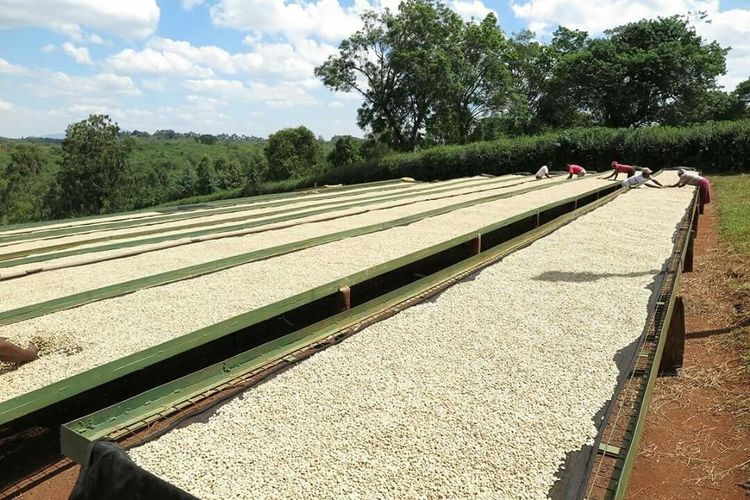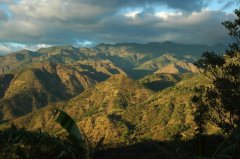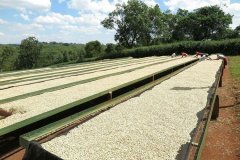A detailed introduction of the flavor characteristics of coffee beans in Vivette Nanguo Tianyi Manor in Guatemala
For professional baristas, please follow the coffee workshop (Wechat official account cafe_style)

Basic information
Farm: Finca Providencia (Huehuetenango) (Manor of God)
Varieties: Caturra, bourbon, Mundo Nuevo, Catuai
Treatment: drying on African scaffolding after washing treatment
Altitude: 1550-1900 m
Owner: Max Ariel Palacios Villatoro
Town: San Pedro Necta (San Pedro Necta)
Region: Huehuetenango (Vivette Nanguo)
Overall: hazelnuts, apples, raisins and chocolate
Finca La Providencia,Huehuetenango-Guatemala

The Finca La Providencia Hotel is located in the high mountains around the town of San Pedro Necta in Huehuetenango, Guatemala, and the farm has been in the Palacios family since 1954. Since then, the farm has been passed on for three generations, from Maximiliano Palacios to his son Javier Palacios Funes Palacios Funes (who died in 2006). At the age of 91) the current owner, Max Ariel, Palacios Veratoro.
Max will almost certainly hand over the farm to his children, who will be the fourth generation to farm on this beautiful land. Now, however, Max stays on the farm, overseeing all aspects of farm management, including administration and agriculture. He is an experienced and dedicated coffee producer with more than 40 years of experience, a love of land and a comprehensive understanding of the region.

Finca La Providencia's geographical location and altitude give it an advantage in producing high-quality coffee. The farm is rich in water resources, there are several springs in the area, and the dry and wet season is obvious, which is beneficial to flowering and processing. However, Vivetta Nanguo's agriculture is not without challenges. The terrain of the farm is fragmented and very irregular, which makes harvesting and cultivation activities more laborious. In order to avoid "washing" and erosion, the fertilization of clay fertile soil must pay strict attention to details. As a result, nearly 30% of farms are preserved under native forests, which helps prevent soil from scouring steep slopes and protect the local ecological environment.
The harvest begins in late December and ends in early April. Coffee is selectively picked by hand, with pickers choosing only the most ripe cherries and then using several Penagos shellers on the farm for ecological pulping. The pulper reduces the impact of wet treatment on the environment by reducing water consumption and waste. After pulping, remove the mucus and send the coffee to the wide terrace of the dry farm, or (if the weather is wet) in a dry place, a slow and uniform temperature in the dry place.
Important Notice :
前街咖啡 FrontStreet Coffee has moved to new addredd:
FrontStreet Coffee Address: 315,Donghua East Road,GuangZhou
Tel:020 38364473
- Prev

How about Honduran Coffee Mi Bendicion from Bandisi Farm, Honduras Coffee producing area
Professional baristas please follow the Coffee Workshop (Wechat official account cafe_style) Benidis Farm (Mi Bendicion) is a small farm in the Intibuca province of Honduras, owned by Victoria Cocepcion, covering an area of only 2.5ha, can only produce 25 bags of Lempira a year, and Colonna buys almost most of it. Lianbi
- Next

Detailed introduction of Honey treatment of Coffee beans in Finca La Providencia Manor of El Salvador
For the exchange of professional baristas, please follow the coffee workshop (Wechat official account cafe_style) basic information farm: Finca La Providencia (Tianyi Manor) varieties: bourbon, Kaddura processing: honey treatment altitude: 1100-1300 meters above sea level owner: Fernando Alfaro&Jose Enrique Gutierrez Origin: Takuba City area: Cordille
Related
- Does Rose Summer choose Blue, Green or Red? Detailed explanation of Rose Summer Coffee plots and Classification in Panamanian Jade Manor
- What is the difference between the origin, producing area, processing plant, cooperative and manor of coffee beans?
- How fine does the espresso powder fit? how to grind the espresso?
- Sca coffee roasting degree color card coffee roasting degree 8 roasting color values what do you mean?
- The practice of lattes: how to make lattes at home
- Introduction to Indonesian Fine Coffee beans-- Java Coffee producing area of Indonesian Arabica Coffee
- How much will the flavor of light and medium roasted rose summer be expressed? What baking level is rose summer suitable for?
- Introduction to the characteristics of washing, sun-drying or wet-planing coffee commonly used in Mantenin, Indonesia
- Price characteristics of Arabica Coffee Bean Starbucks introduction to Manning Coffee Bean Taste producing area Variety Manor
- What is the authentic Yega flavor? What are the flavor characteristics of the really excellent Yejasuffi coffee beans?

